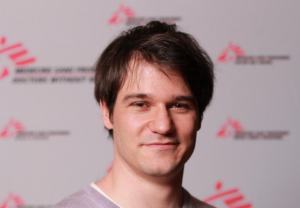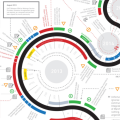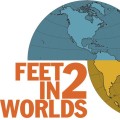2012, Governance and Rights Concentration
Operational Communications Advisor in the Operational Support, Communications, Advocacy and Reflection Department at Médecins Sans Frontières (Doctors Without Borders)
Martin participated in the 2010 International Field Program in Nepal, where he studied how the notion of legitimacy was applied within the public discourse on Nepal’s constitution-drafting process.
 Academic Work at SGPIA: In addition to the research experience he gained with the International Field Program in Nepal, Martin credits the courses Global Governance (taught by Everita Silina) and Advanced Quantitative Methods (taught by Richard Hendra) as being particularly applicable to his career path.
Academic Work at SGPIA: In addition to the research experience he gained with the International Field Program in Nepal, Martin credits the courses Global Governance (taught by Everita Silina) and Advanced Quantitative Methods (taught by Richard Hendra) as being particularly applicable to his career path.
Regarding his coursework, Martin states:
“My experiences in Nepal provided a rudimentary framework against which to compare and contrast issues of instability I have since encountered elsewhere, and this has proven a real aid to try and understand situations in those places and so make more informed decisions. [Global Governance] made me more comfortable with using different schools of thought – and, indeed, mixing schools of thought – in order to offer the most plausible explanations for governance decisions and reactions to them. As a result [of taking Advanced Quantitative Methods], I have been able both to use statistics more soundly to complement other methods to make my arguments, and to better identify the abusive use of statistics by others in their argumentation.”
Practical Experience While Studying at SGPIA: Martin completed an internship/consultancy with the Responsible Endowments Coalition, where he constructed a model that predicted the likely sympathy for the organisation’s cause at various universities across the US, using publically available data about the student populations at those universities.




